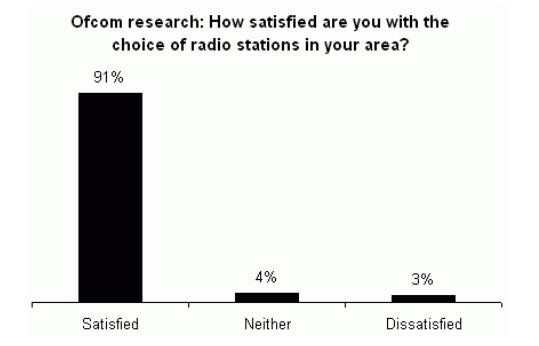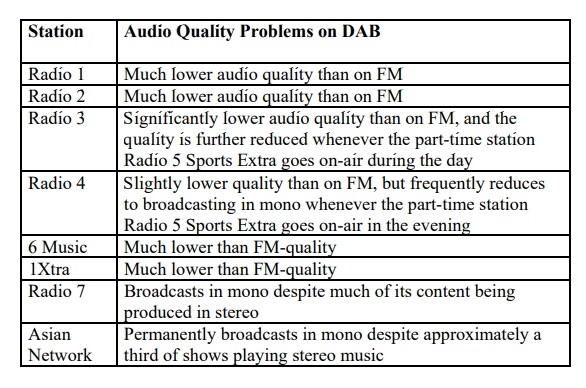Soldato
- Joined
- 17 Aug 2003
- Posts
- 20,160
- Location
- Woburn Sand Dunes
Dont waste any time on him. He never learns.
OP.... Which part of NOBODY CARES ABOUT DAB OUTSIDE THE UK, do you not understand?
Also your deflecting your argument to cars.... Which again isn't the debate. The fact is, and is irrefutable, DAB in the UK is rubbish.
I am quite sure that you in the South of England can receive DAB+ signals from France, Belgium, the Netherlands and Luxembourg, if there are good tropo weather conditions - you can receive DAB+ signals even from Germany or Norway, or the North of England can receive French signals.

Who the heck wants to listen to foreign language radio on DAB ?
And you can’t get those stations from the uk . I’ve just looked it up. Your smoking something
https://www.digitalradiochoice.com/questions/receive-dab-stations-other-countries/
"In the UK it’s not possible to receive DAB or DAB+ radio stations from other countries. The digital radio stations which are available around the country all come from UK transmitters."

Me. Music has no language. Most radios are music only.
Ok
"I'm getting radio and tv stations from the netherlands, belgium, denmark and more"
they apparently launched radio bradford just before christmas too"BBC Radio Wolverhampton launches on Friday (January 15) and BBC Radio Sunderland launches on Monday.
"An online radio station has joined the Norwich and Cambridge small scale DAB multiplexes.
Rubix Radio started life streaming during the first Lockdown in 2020 and has now made the move to DAB.
The station’s strapline is ‘where the party never stops’ and plays music from the 80s, 90s, 00s and now
Jeremy Durrant, Managing Director, told RadioToday: “We are so excited to launch in these areas and have plans to reach the rest of the east of England on DAB.”
https://radiotoday.co.uk/2021/01/rubix-radio-launches-on-two-dab-multiplexes/

The public does not support FM stations being switched off. Ofcom’s research has shown that 91% of people are “satisfied” with the amount of choice available on the radio today, and only 3% of people are “dissatisfied”. DAB’s proponents claim that its main benefit is the additional choice it offers; therefore Ofcom’s research shows that there is very little demand for DAB.

This has been borne out in practice by DAB’s very low sales figures, which led to Tim Davie, the BBC’s Director of Radio, saying that the current trend in sales “would not lead to radio switchover in our lifetime”.
The public outcry that resulted when the 2015 switchover date was first announced was further evidence of the public’s opposition to the plans to switch off FM stations. And the broadcasters have yet to provide a single piece of evidence to even suggest that the public is in favour of this happening.
As it is the public that will have to spend approximately £7.7 billion on replacing existing audio equipment, the BBC Trust should hold a public consultation on this matter prior to any legislation being put in place.
DAB delivers lower sound quality than FM. Digital radio switchover should not lead to listeners receiving their favourite stations at lower audio quality, therefore stations must switch to using DAB+ prior to any FM station being switched off.
The commercial radio broadcasters would only save an estimated £16.2 million per annum by switching off FM stations, not the £30 million that the radio industry has claimed
DAB delivers lower quality than FM
98% of stereo stations on DAB in the UK are broadcast at lower audio quality than on FM. As the BBC’s stations account for such a large proportion of all radio listening, the following table is provided to show the problems with the audio quality of the BBC’s stations.

The BBC’s national DAB multiplex is completely full, so the BBC is unable to improve the audio quality of its stations, and the only way for the BBC to provide its stations at similar quality to that on FM is if the stations switch to using DAB+.
Internet radio has been excluded from digital radio planning due to protectionism
Internet radio and audio streaming services are emerging technologies that are growing in popularity. Internet radio in general offers a number of advantages over DAB/DAB+:
• Most Internet radio streams are at far higher audio quality than DAB
• The Internet can deliver on-demand streams, whereas DAB/DAB+ isn’t able to because broadcast platforms aren’t able to deliver on-demand content at all • Personalised radio and audio streaming services are available, such as last.fm and Spotify, which cannot be delivered via broadcast platforms
• Unlimited range of stations
• High-definition radio could feasibly be delivered via the Internet in future because Internet bandwidth/speed increases in-line with Moore’s Law (doubling every 18 months), whereas it would be impossible to deliver HD radio via DAB/DAB+ due to lack of capacity
• Distribution costs via the Internet fall exponentially over time due to Moore’s Law (bandwidth halves in price every 18 months) • Interactivity is possible, whereas it is impossible on broadcast platforms such as DAB/DAB+
• Audio can easily be combined with video and pictures
Despite the Internet having the above advantages in comparison to DAB/DAB+, the Digital Radio Working Group (DRWG) excluded Internet radio from the recommendations it made to Government about how to proceed towards digital radio switchover. The reason why the DRWG chose to exclude Internet radio was quite simply down to protectionism: the broadcasters’ stations would face more competition on the Internet than they would on the “walled garden of content” on DAB, so they would prefer to push as many people onto DAB as they possibly can.
This is from the records section of the Houses of Parliament. Here are some extracts:
Full document here: LINK
I can't be arsed posting any more on this right now. The TL;DR version is that anyone interested in sound quality from radio in the UK wouldn't choose DAB over FM. Those who don't care, well, they just don't care. If DAB ceased broadcasting tomorrow they'd quickly adapt without shedding too many tears.
BS,
Technically, FM is almost switched off in London already, providing miserable 23 stations on the analogue poor quality sound vs as many as 118 stations in perfect digital quality.
Radio stations in London, England — Radiomap.eu


The link below is a government document that basic debunks your entire argument......

